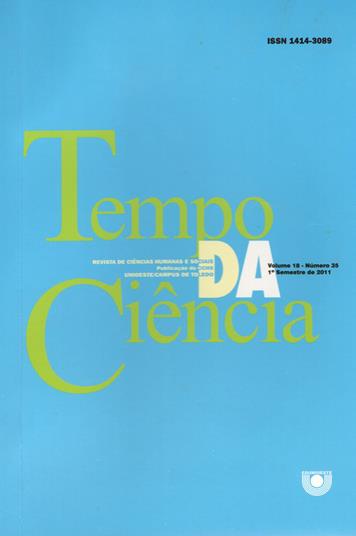Da loucura ao transtorno mental: a constituição de políticas sociais e seus pressupostos
DOI:
https://doi.org/10.48075/rtc.v18i35.9005Keywords:
Transtorno mental, políticas em saúde, reforma psiquiátricaAbstract
This paper is the result of theoretical and professional concerns, and subsequentlydiscussed in Research Group of Foundations of Social Work: Work and Social Issue3,and aims to promote a discussion how about the construction of historical madness, providedideas and guidelines for implementation of social policy over time. This discussion is basedon Foucault’s readings, his genealogical approach of the phenomenon, and how his theory isunderstood in the modern period from the establishment of a specific and authorized knowledge/power.For a long time, crazy people was approached with unwanted ones, establishing a strong linkbetween the figure of the insane and criminal, justifying the exclusion and incarceration ofthem. Only from the second half of the nineteenth century, the asylum model based on Pinel,enter into crisis and starts the movement of French and English non- psychiatry. In 80 years,workers in mental health, all over the country, organized themselves for the Brazilian projectof non-institutionalization of psychiatric treatment, culminating in 2001 with the enactmentof Law number 10216, which proposes a humane treatment to mentally ill people and reversalof the asylum type for public community services.Downloads
Published
How to Cite
Issue
Section
License
Aviso de Direito Autoral Creative Commons
Política para Periódicos de Acesso Livre
Autores que publicam nesta revista concordam com os seguintes termos:
1. Autores mantém os direitos autorais e concedem à revista o direito de primeira publicação, com o trabalho simultaneamente licenciado sob a Licença Creative Commons Attribution que permite o compartilhamento do trabalho com reconhecimento da autoria e publicação inicial nesta revista.
2. Autores têm autorização para assumir contratos adicionais separadamente, para distribuição não-exclusiva da versão do trabalho publicada nesta revista (ex.: publicar em repositório institucional ou como capítulo de livro), com reconhecimento de autoria e publicação inicial nesta revista.
3. Autores têm permissão e são estimulados a publicar e distribuir seu trabalho online (ex.: em repositórios institucionais ou na sua página pessoal) a qualquer ponto antes ou durante o processo editorial, já que isso pode gerar alterações produtivas, bem como aumentar o impacto e a citação do trabalho publicado (Veja O Efeito do Acesso Livre).
Licença Creative Commons
Esta obra está licenciada com uma Licença Creative Commons Atribuição-NãoComercial-CompartilhaIgual 4.0 Internacional, o que permite compartilhar, copiar, distribuir, exibir, reproduzir, a totalidade ou partes desde que não tenha objetivo comercial e sejam citados os autores e a fonte.


